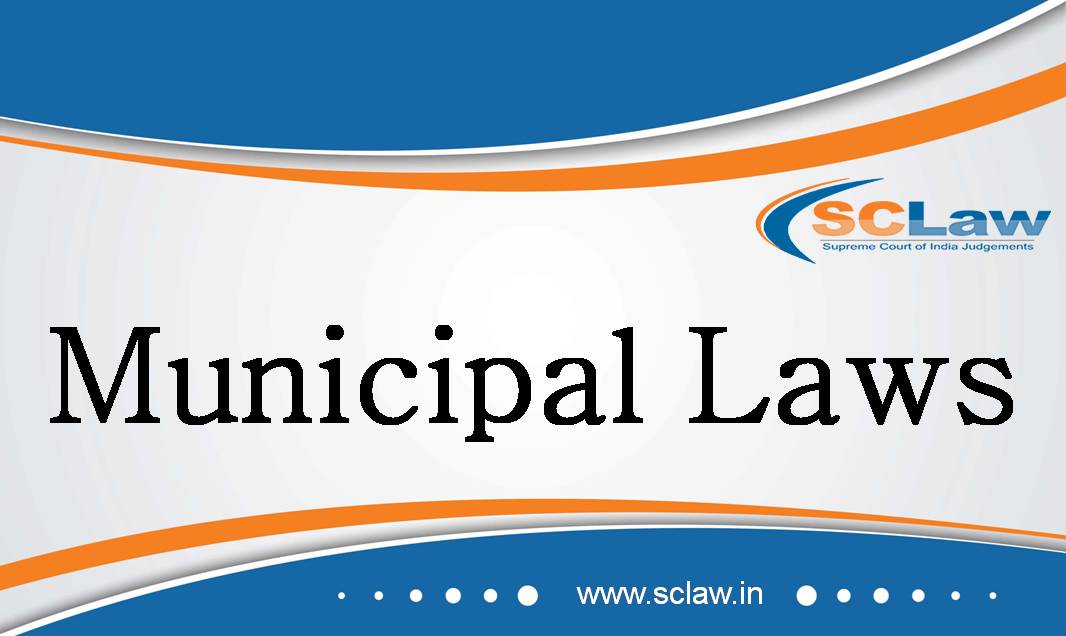Order Convening General Court Martial Can Be Challenged Before AFT, Holds SC HELD Any matter relating to the conditions of service falls within the definition of ‘service matters’ under Section 3 (o) of the Act and can be the subject matter of an application filed before the Tribunal. Therefore, conditions of service also include dismissal from service.
Order Convening General Court Martial Can Be Challenged Before AFT, Holds SC BY: ASHOK KINI 28 Nov 2019 11:09 AM The Supreme Court has held that an order convening a…
Will – Adverse possession – Possession of the Respondent was purely permissive and that the claim on the ground of adverse possession was completely untenable – Appeal allowed.
SUPREME COURT OF INDIA DIVISION BENCH JIT RAM NOW DECEASED THROUGH LRS — Appellant Vs. SATNAM SINGH — Respondent ( Before : Uday Umesh Lalit and Vineet Saran, JJ. )…
Civil Procedure Code, 1908 (CPC) – Order 41 Rule 5 – Section 96 and Order 41 – Determination – Recovery of loss – A chart showing the original price as against the resale price, thereby projecting the net loss suffered by the appellant, the correctness of the same cannot be adjudicated in a proceeding of the present nature arising out of a writ proceeding – The matter being contractual and also requiring factual determination
SUPREME COURT OF INDIA FULL BENCH ODISHA FOREST DEVELOPMENT CORPORATION — Appellant Vs. M/S ANUPAM TRADERS AND ANOTHER — Respondent ( Before : R. Banumathi, A.S. Bopanna and Hrishikesh Roy,…
Penal Code, 1860 (IPC) – Sections 302 and 120B – Murder – Non-recovery of weapons – Acquittal – HC judgement on point Approved by SC
SUPREME COURT OF INDIA FULL BENCH JAIPRAKASH — Appellant Vs. STATE OF UTTAR PRADESH AND OTHERS — Respondent ( Before : R. Banumathi, A.S. Bopanna and Hrishikesh Roy, JJ. )…
Assam Public Service Commission (Procedure and Conduct of Business) Rules, 2010 – Rule 29 and Rule 30 – Assam Public Service Commission (Conduct of Business) Procedure, 2019 – Clause 12.2 – Interviews/selection – This Court are persuaded to hold that the recruitment process initiated by the APSC through the advertisement dated 21.12.2018 for the 65 posts of Assistant Engineer (Civil), of the Water Resources Department should be finalised under the 2010 Rules
SUPREME COURT OF INDIA FULL BENCH THE ASSAM PUBLIC SERVICE COMMISSION AND OTHERS — Appellant Vs. PRANJAL KUMAR SARMA AND OTHERS — Respondent ( Before : R. Banumathi, A.S. Bopanna…
Service Law – One Man Commission – Revision of pay-scales – The 6th Central Pay Commission comprising of experts in the field had recommended certain pay-scales for various posts – HELD but if further anomalies were found which called for action on part of the Government, any exercise to reconsider the matter by the State Government could not be faulted nor could the constitution of the PGRC (Pay Grievance Redressal Cell) be said to be invalid or illegal –
SUPREME COURT OF INDIA DIVISION BENCH TAMIL NADU RURAL DEVELOPMENT ENGINEERS AND ASSISTANT ENGINEERS ASSOCIATION — Appellant Vs. GOVERNMENT OF TAMIL NADU AND OTHERS — Respondent ( Before : Uday…
Body Corporates Like City Municipal Council/Corporation Can Be Prosecuted U/s 47 Water (Prevention and Control of Pollution) Act HELD “Offences by body corporate like City Municipal Council are covered under Section 49 treating it to be offence as by company as provided in Section 47.”
Body Corporates Like City Municipal Council/Corporation Can Be Prosecuted U/s 47 Water (Prevention and Control of Pollution) Act: SC [Read Judgment] “Offences by body corporate like City Municipal Council are…
SC Strikes Down Section 87 Of Arbitration & Conciliation Act Inserted By 2019 Amendment HELD “The retrospective resurrection of an automatic-stay not only turns the clock backwards contrary to the object of the Arbitration Act, 1996 and the 2015 Amendment Act, but also results in payments already made under the amended Section 36 to award-holders in a situation of no-stay or conditional-stay now being reversed”
SC Strikes Down Section 87 Of Arbitration & Conciliation Act Inserted By 2019 Amendment In a significant judgment, the Supreme Court on Wednesday struck down Section 87 of the Arbitration…
Issue Of Limitation Not To Be Examined While Considering Application Seeking Appointment Of Arbitrator HELD “The issue of limitation is a jurisdictional issue, which would be required to be decided by the arbitrator under Section 16, and not the High Court at the pre¬reference stage under Section 11 of the Act”
Issue Of Limitation Not To Be Examined While Considering Application Seeking Appointment Of Arbitrator: SC [Read Judgment] BY: ASHOK KINI27 Nov 2019 8:35 PM “The issue of limitation is a…
Prevention of Corruption Act, 1988 – Sections 7, 13 and 19(1) – Demand of bribe to provide the electricity meter – Conviction and sentence – Appeal against – Recovery of the money from the pocket of the appellant has also been proved without doubt – Money was demanded and accepted not as a legal remuneration but as a motive or reward to provide electricity connection – Appeal dismissed
SUPREME COURT OF INDIA DIVISION BENCH VINOD KUMAR GARG — Appellant Vs. STATE (GOVERNMENT OF NATIONAL CAPITAL TERRITORY OF DELHI) — Respondent ( Before : Indu Malhotra and Sanjiv Khanna,…











